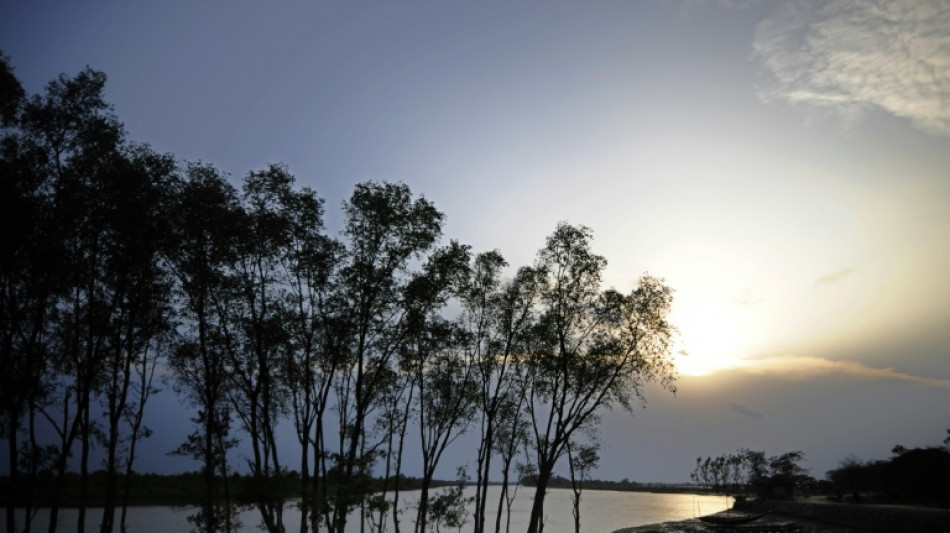
SCS
0.0200


Conservationists in Bangladesh said Tuesday that tourists dropping rubbish in the world's largest mangrove forest had seriously damaged the ecosystem, forcing the imposition of a single-use plastic ban in the World Heritage site.
The Sundarbans forest straddles the Bangladeshi coastline and is home to some of the world's rarest creatures, including the Bengal tiger and the Irrawaddy dolphin.
Some 200,000 tourists visit each year, according to government figures, on top of seasonal visits by fishermen and harvesters of wild honey who depend on the ecosystem's bounties.
"When they visit the forest, they bring in disposable water bottles, one-time use plastic food plates, soft-drink bottles and cans," Abu Naser Mohsin Hossain, a government forest conservator, told AFP.
"It is tough to clean up," he added.
Bangladesh environment minister Md. Shahab Uddin announced a single-use plastic ban covering 6,500 square kilometres (2,500 square miles) of the forest late Monday.
"Single-use plastics have severely damaged the environment and biodiversity of the Sundarbans," the minister said.
His decision was immediately hailed by environmentalists.
"The environment and biodiversity are at stake in the Sundarbans," Monirul Khan, a zoology professor at Bangladesh's state-run Jahangirnagar University, told AFP.
"The gravity of pollution caused by plastics is more than meets the eye. Wild animals often end up eating these plastics."
Part of the Sundarbans was designated a World Heritage site by UNESCO in 1997.
Mangroves protect coastlines from erosion and extreme weather events, improve water quality by filtering pollutants and serve as nurseries for many marine creatures.
They can help fight climate change by sequestering millions of tons of carbon each year in their trees' leaves, trunks, roots and the soil.
The Sundarbans, located on the delta of the Ganges, Brahmaputra and Meghna rivers on the Bay of Bengal, also help buffer coastal communities in Bangladesh from the cyclones that frequently strike the country during its annual monsoon.
Conservationists regularly sound the alarm over environmental threats to the Sundarbans, including the construction at its northern edge of a coal-fired power station that began operations last year.
Bangladesh Environment Movement general secretary Sharif Jamil said the plant remained a considerable threat to the ecosystem.
"The government should stop coal transportation and discharging through the forest's rivers," he told AFP.
"Uncovered vessels that carry coal for the power plant through the forest also cause a great deal of pollution."
C.Mak--ThChM